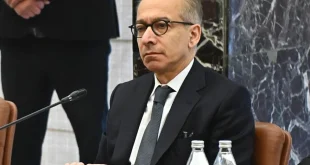العين على البيان الوزاري: الإصلاح المالي يبدأ بالشفافية وإنهاء الأرقام الوهمية
بعد تشكيل حكومة الإصلاح والإنقاذ واستكمال المؤسسات الدستورية، تتجه الأنظار نحو البيان الوزاري وما سيحمله من إصلاحات مالية واقتصادية حاسمة، في ظل الحاجة الملحة لإعادة هيكلة الاقتصاد واستعادة الثقة الدولية بلبنان.
إقرار سريع للبيان الوزاري
تشير مصادر وزارية إلى أن البيان الوزاري سيتم إقراره خلال الأسبوع المقبل، حيث اتسم الاجتماع الأول للجنة الصياغة بأجواء إيجابية، مما يعكس تسارع وتيرة العمل مقارنة بالحكومات السابقة. وتؤكد المصادر أن الحكومة تواجه تحديات اقتصادية ومالية كبرى، مما يستدعي خطوات إصلاحية جريئة وسريعة.
ضرورة الانتقال من الأرقام الوهمية إلى الشفافية المالية
تؤكد المصادر أن الأوضاع المالية في لبنان معقدة للغاية، والحل يكمن في إدارة مالية سليمة وقطاع عام منتج. وترى أن الحكومة الجديدة يجب أن تعترف بحجم المشكلة المالية وأسبابها حتى تتمكن من إيجاد الحلول المناسبة.
كما شددت على ضرورة اعتماد الأرقام الواقعية المتفق عليها بين مصرف لبنان وجمعية المصارف، بدلاً من الأرقام الوهمية المتضاربة التي كانت تعرقل عمل مجلس النواب، وخاصة فيما يتعلق بالموازنات العامة.
إلغاء السرية المصرفية ضرورة إصلاحية
تعتبر المصادر أن إلغاء قانون السرية المصرفية الصادر عام 1956 بات ضرورة ملحة، خاصة بعد الأزمات المالية التي فقد فيها لبنان امتيازاته المصرفية السابقة. وترى أن المصارحة والشفافية في الأرقام المالية ستعيد الثقة بالمؤسسات اللبنانية، لا سيما من قبل صندوق النقد الدولي والبنك الدولي.
كما دعت الحكومة إلى عدم تقديم أرقام غير دقيقة للمؤسسات الدولية، مشددة على أن استعادة الثقة تحتاج إلى عقود من العمل الجاد والإصلاحات العميقة.
استعادة الثقة بالقطاع المصرفي أساس التعافي الاقتصادي
ترى المصادر أن معالجة الأزمات المالية تبدأ بإصلاح القطاع المصرفي، حيث يجب وضع خطة إصلاحية تتماشى مع متطلبات صندوق النقد الدولي، حتى وإن كانت هناك بعض التحفظات على مقترحاته. وتؤكد أن العلاقة الجيدة مع الصندوق ستساعد لبنان على الوصول إلى الأسواق المالية الدولية وتأمين التمويل اللازم للاستحقاقات المالية المستقبلية.
حاكم جديد لمصرف لبنان… خطوة لا بد منها
تشدد المصادر على ضرورة تعيين حاكم جديد لمصرف لبنان فور نيل الحكومة الثقة، مشيرة إلى أن السياسة النقدية تخضع لاستقلالية الحاكم، وأن أي تعيين جديد يجب أن يكون ضمن رؤية واضحة لإعادة هيكلة السياسة النقدية وضبط الانهيار المالي.
ملف الودائع واليورو بوند… فصل أم ارتباط؟
تطرقت المصادر إلى تصريحات رئيس الحكومة نواف سلام حول رفض شطب الودائع، ملمحة إلى إمكانية ربط الودائع بملف سندات اليورو بوند، لكنها شددت على ضرورة الفصل بين الملفين لحماية أموال المودعين وإعادة تنظيم النظام المالي.
خاتمة: الشفافية والمحاسبة أساس التعافي
أكدت المصادر أن لبنان لا يمكنه الخروج من أزمته دون إصلاحات حقيقية وشفافة، مشيرة إلى أهمية تقديم جميع المودعين تصاريح واضحة عن مصدر أموالهم لضمان عدم وجود أموال غير شرعية. كما شددت على ضرورة محاسبة المسؤولين عن الأزمة، ولكن دون إغفال أهمية وضع رؤية مستقبلية واضحة لإنقاذ الاقتصاد.
Eyes on the Ministerial Statement: Financial Reform Begins with Transparency and Ending Fake Numbers
With the formation of the Reform and Rescue Government and the completion of state institutions, all attention is now focused on the ministerial statement, which is expected to introduce key financial and economic reforms to restore international confidence in Lebanon.
Swift Approval of the Ministerial Statement
Government sources indicate that the ministerial statement will be finalized and approved next week, as the initial drafting meeting was highly positive, reflecting a faster pace compared to previous governments. However, the government faces major economic and financial challenges, requiring bold and immediate action.
Shifting from Fake Numbers to Financial Transparency
Sources emphasize that Lebanon’s financial situation is extremely complex, and the solution lies in proper financial management and a productive public sector. The government must first acknowledge the true extent of the financial crisis to develop effective solutions.
Additionally, they stress the importance of using real financial figures agreed upon by the Central Bank and the Association of Banks, rather than contradictory and misleading statistics, which have historically obstructed parliamentary decisions, particularly regarding budgets.
Ending Banking Secrecy: A Necessary Reform
The sources argue that Lebanon must abolish its 1956 banking secrecy law, especially after financial mismanagement led to the loss of its privileged banking status. They believe that transparency in financial data is crucial to regaining trust from institutions like the IMF and the World Bank.
They also caution against presenting misleading figures to international institutions, stating that Lebanon's path to recovery requires decades of genuine effort and deep structural reforms.
Restoring Trust in the Banking Sector: A Pillar of Economic Recovery
The sources highlight that resolving Lebanon’s financial crisis begins with banking sector reforms. They stress the need for a comprehensive financial plan aligned with IMF recommendations, even if some IMF proposals are not entirely favorable. A strong relationship with the IMF will help Lebanon access global financial markets and secure critical funding for upcoming financial obligations.
Appointing a New Central Bank Governor: A Critical Step
The government must appoint a new governor for the Central Bank immediately upon securing parliamentary confidence, the sources insist. The monetary policies of Lebanon depend on the governor’s independent authority, making it essential to have a clear vision for restructuring Lebanon’s financial and monetary policies.
Deposits and Eurobonds: Separate or Linked Issues?
Referring to Prime Minister Nawaf Salam’s remarks about rejecting deposit write-offs, the sources hinted at a potential connection between deposits and Eurobond restructuring. However, they emphasized the importance of keeping the two issues separate, ensuring depositors' rights while reorganizing the financial sector.
Conclusion: Transparency and Accountability as the Foundation for Recovery
The sources firmly believe that Lebanon cannot recover without genuine and transparent reforms. They highlight the necessity for depositors to disclose the source of their funds to ensure no illicit money is circulating. Lastly, they stress the importance of holding those responsible for the crisis accountable, while simultaneously establishing a clear roadmap for Lebanon’s financial recovery.
Translated by economyscopes team
المصدر: لينا الحصري زيلع
 سكوبات عالمية إقتصادية – EconomyScopes إجعل موقعنا خيارك ومصدرك الأنسب للأخبار الإقتصادية المحلية والعربية والعالمية على أنواعها بالإضافة الى نشر مجموعة لا بأس بها من فرص العمل في لبنان والشرق الأوسط والعالم
سكوبات عالمية إقتصادية – EconomyScopes إجعل موقعنا خيارك ومصدرك الأنسب للأخبار الإقتصادية المحلية والعربية والعالمية على أنواعها بالإضافة الى نشر مجموعة لا بأس بها من فرص العمل في لبنان والشرق الأوسط والعالم




